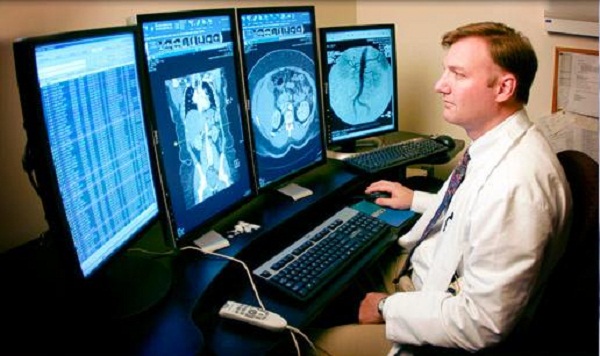
Crohn’s Disease is a medical condition in which a person suffers from inflammation of the lining of the digestive tract. This is also referred to as the Inflammatory Bowel Disease (IBD). This disease causes severe pain in the abdomen, followed by diarrhea and leading to malnutrition. This makes the patient very weak and prone to infections. This is a severe intestine disease and can at times be life threatening. However, a proper diagnosis and test can help identify the disease. This would be the first step towards relieving the patient from its drastic effects.
There are several tests involved to clearly segregate and identify this condition from other common intestinal ailments. A specialist may carry out one or more of the following tests to clearly identify the Crohn’s Disease.
1. Colonoscopy
This procedure allows the medical specialist to view the patient’s colon from inside using a small tubular camera. A sample of the tissue from the inner lining of the colon is also taken. These are then tested in the laboratory to confirm the presence of granulomas which are the inflammatory cells. Their presence clearly indicates the onset of Crohn’s.
2. Small bowel imaging
Here the part of the small bowel which can’t be seen in regular colonoscopy is looked at. After making the patient drink the barium solution; x-ray, MRI or a CT scan is taken of the small intestine. This helps in locating the narrow areas or inflammation in the small intestines which are highlighted due to barium absorption.
3. Double balloon endoscopy
This is a specialized procedure. Here, a longer scope is used to reach the inner areas of the small intestine which are not accessible in standard procedures. This allows for the biopsy of the area which has earlier been detected as potentially abnormal during normal endoscopy.
4. Flexible Sigmoidoscopy
Here, the expert examines the last section of the colon called the sigmoid using a slender flexible tube. This can help identify abnormal growths, inflammation or intestinal bleeding.
5. MRI or Magnetic Resonance Imaging
A very effective test in diagnosing Crohn’s Disease is the MRI. Here, the patient lies on a table and is scanned by the MRI. There is no radiation exposure as the magnetic field and radio waves are used. It gives a detailed image of organs and tissues and the results are very effective using this technique.
6. Capsule endoscopy
As the name suggests there is a capsule which has to be swallowed by the patient. This capsule has a miniature video camera in it and this camera takes the pictures of the inside of the intestines and transmits on the receiver on the belt worn by the patient. These are later downloaded and seen on a computer screen. This test is done to detect the Crohn’s when other tests are showing negative in their inference. The capsule after the test passes out in the stool without any difficulty. However, the images provided are not very detailed and biopsy still needs to be done to confirm the disease. This test is not recommended in patients who have obstructions in the small intestine because this could make the capsule get stuck inside the intestines thus making the situation more complicated. Otherwise, this test has found to be a very effective testing method for the Crohn’s.
7. CT scan or computerized tomography
This is an advanced x-ray technique where more detailed information can be obtained. This test gives the vast view of the intestines. This test confirms the extent and location of the disease and can easily locate abscesses. This test has been found to be quite effective in evaluation of pathology of the small intestines. However, this test exposes the patient to a higher degree of radiation than that of a normal x-ray.
8. Barium enema
Before the start of the test the patient is given barium solution enema. Now an x-ray of the large intestine is taken to diagnose the condition. The barium dye coats the inner wall of the intestine and any abnormality present is visible in the x-ray. This test is less frequent these days as colonoscopy is preferred over the same.
9. Fecal occult and other blood tests
In the fecal occult test a sample of stool from the patient is tested for blood traces. In the routine blood tests anemia or infection is tested. However, these are very basic tests and do not provide any concrete inference.




